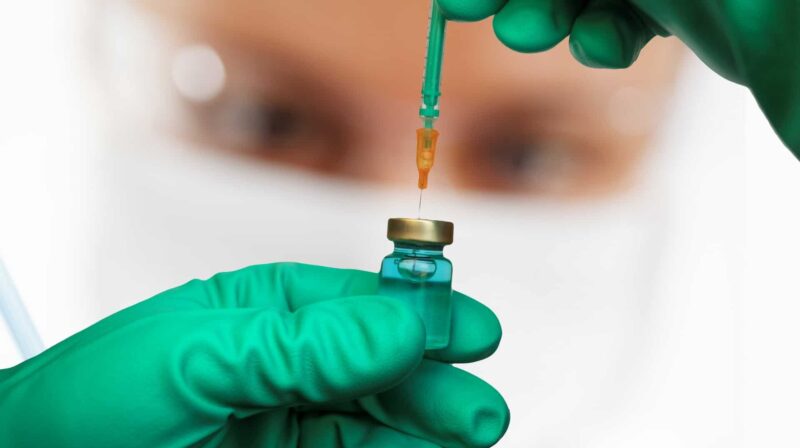To help journalists worldwide navigate vaccine science and manage misinformation, Internews created a comprehensive online course, Let’s Talk Vaccines—first in English, now available in French, Arabic, Russian, Romanian, Serbian, Hindi and soon in Bosnian, Spanish, Portuguese, and possibly Kiswahili.
Ida Jooste, Journalist and Internews Global Health Media Advisor, speaks about the course and the importance of quality journalism to help audiences navigate fast-moving science.
We see the relaxation of COVID control measures in some countries and the yearning everywhere to go back to living life as “normal”—referring to the times before the COVID-19 pandemic hit.
At the same time, scientists warn that we may be done with COVID, but COVID may not be done with us. This is why the pandemic remains a priority in newsrooms across the globe. For journalists, the ability to report on the virus and the vaccine accurately is vital.
That’s where the Let’s Talk Vaccines course comes in.
Now available in multiple languages, Let’s Talk Vaccines is a free online course that helps journalists translate the language of vaccine science into compelling human stories. The course content is anchored with interactive exercises that can be used for self-study at an individual pace or as a training tool for blended learning.
Since the launch of the course in May 2021, around 1,300 journalists from around the globe have enrolled, giving them access to all things vaccines in one place, with a chance to put questions to authors and packed with resources for mapping out stories.
Making Science More Accessible
In early April 2022, 30 journalists from francophone Africa completed a unique blended learning offering of the French language version, Parlons de Vaccins. Through a mix of self-study, training sessions, and Q&As with experts, they’ve emerged with a good grasp of relevant areas in science—vaccine development, immunology, and safety monitoring—and the tools to ask the right questions and then earn the trust of their audiences.
“This course is of paramount importance because it allowed us to block the road to rumors and false information concerning COVID-19, and to improve my own knowledge.” — Traore Koumba, Journalist from Mali
Reporting on Vaccine Hesitancy
The current global vaccine rollout is accompanied by misinformation. In the Vaccine Confidence module, journalists learn to acknowledge their readers’ very real fears whilst helping them make the best decisions for their and their family’s health.
‘I’m sure that all of us – even as journalists covering this science story – know people, have met people who express hesitancy about getting vaccinated for COVID-19. But have we unpacked the deep layers that make up the reasons why’, says Katherina Thomas, a Pandemic Media Mentor and author of the Confidence module.
“The course gave me a broader view of the vaccine. The work however remains on my side to disseminate the right information to our readers to help them change their behavior.” — Insiwe Christel, Journalist from DRC.
Agitating for Access
In 2022, two years after the pandemic hit, a global vaccine apartheid started to unfold, with surplus vaccines in some parts of the world and a slow trickle of vaccination in many other parts.
“Understanding how access and the distribution of vaccines work allows journalists to unpick and report on the politics and finances at play in rolling out vaccines to all people,” says Adele Baleta, author of the Science, Access, and Logistics Modules.
“The content in this course really touched on the questions we were asking ourselves about vaccination. The experts’ explanations with supporting diagrams greatly facilitated understanding and exchanges with the participants.” — Besane Mangam Jean, Journalist from Cameroon
Let’s Talk Vaccines has gained respect from the science community, many of whom doubled up as science communicators during the pandemic. Quality vaccine journalism is not only necessary but can save lives. For many communities across the globe, local media platforms are the primary source of information. That’s why it’s so essential for all journalists to have access to the resources that will allow them to report the story accurately.
The French translation of Let’s Talk Vaccines was made possible with support from the Sabin Vaccine Institute.
